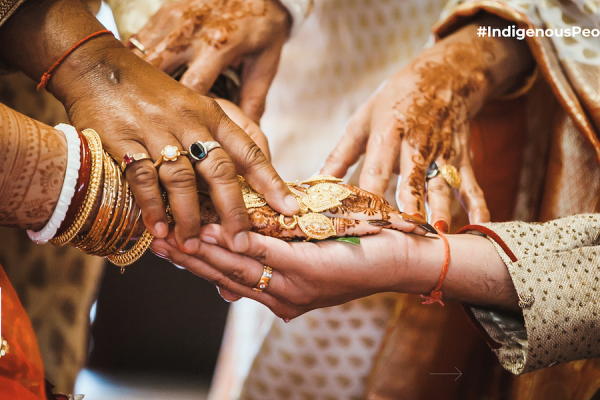CHARM-EU joins the celebration of the International Day of the World’s Indigenous Peoples on 9 August 2023

The first meeting of the UN Working Group on Indigenous Populations was held in Geneva in 1982 and dedicated 9 August to the International Day of the World’s Indigenous Peoples to recognise and protect Indigenous Peoples’ rights and maintain their cultures and way of life.
Indigenous peoples have faced discrimination, exclusion, structural barriers, and inequalities of economic power, social protection, and political representation. They have been seeking recognition of their identities, way of life and their right to traditional lands, territories, and natural resources for years, yet throughout history, and their rights have always been violated. They are nearly three times more likely to live in extreme poverty than non-indigenous people. They represent 15 % of the world’s poorest people. Globally, 47% of all indigenous peoples in employment have no education. The percentage is even higher for women Read more about the resources here.(UN, Department of Economic and Social Affairs Indigenous Peoples, n.a).
Theme in 2023
The theme of 2023, ”Indigenous Languages”, calls for the revitalisation, preservation, and promotion of indigenous languages worldwide. There are an estimated 476 million indigenous people in the world living across 90 countries. They account for less than 5 % of the world’s population. They speak most of the world’s estimated 7,000 languages and represent 5,000 cultures. Indigenous communities often have various belief systems, cultures, and customs. Many still live in close contact with land, with respect for and understanding of their natural surroundings. Their languages are usually not taught in schools and thus are more likely to disappear.
CHARM-EU is an innovative new university model, and one of the core values of CHARM-EU is inclusiveness. Meaningfully applying inclusive, diverse approaches is embedded in CHARM-EU’s organisational culture, especially in its Master’s, specifically in curricula design and teaching and learning environment. Respecting and celebrating individuals and communities from various backgrounds, cultures, heritages, languages, life experiences, and circumstances is vital to CHARM-EU.
Agnes Sarolta Fazekas-Vinkovits, Leader of CHARM-EU Inclusiveness (Diversity, Equity, and Inclusion) Team, highlights: ”The 21st century’s global higher education is changing and the curricula design and designing and interacting in teaching environments require a new approach and new solutions that respect, celebrate diversity of individuals, their cultures, heritage, and own lived experiences.”
Agnes invites you to learn more about the hands-on tool, Inclusivity Tips for CHARM-EU educators | CHARM-EU, which is a resource that is beneficial to all, not just educators! One of the key items of this resource beautifully connects with today’s International Day.
Diversification of teaching materials is one of the tangible actions towards inclusive education and fostering a sense of belonging. Diversification of teaching materials means that educators are conscious of the diversity of perspectives and acknowledge that unconscious biases exist, and various perspectives are still under-represented in higher education. Therefore, it is essential to select and provide a collection of learning materials for students which bring different origins, cultures, heritages, nationalities, personal experiences, etc., its presentation, and point of view/approach through content and authors.
Joins us to raise awareness by using the hashtag #IndigenousPeoplesDay on social media. Find more information by visiting the following link: International Day of the World’s Indigenous Peoples | United Nations
References:
United Nations International Day of the World’s Indigenous Peoples 9 August official website: International Day of the World’s Indigenous Peoples | United Nations
Resources, UN, Department of Economic and Social Affairs Indigenous Peoples: Resources | United Nations For Indigenous Peoples
Credit:
The contribution was prepared by Enikő Bíró, a student volunteer (ELTE BGGYK), in collaboration with Agnes Sarolta Fazekas-Vinkovits, Leader of the CHARM-EU Inclusiveness (Diversity, Equity, and Inclusion) Team.